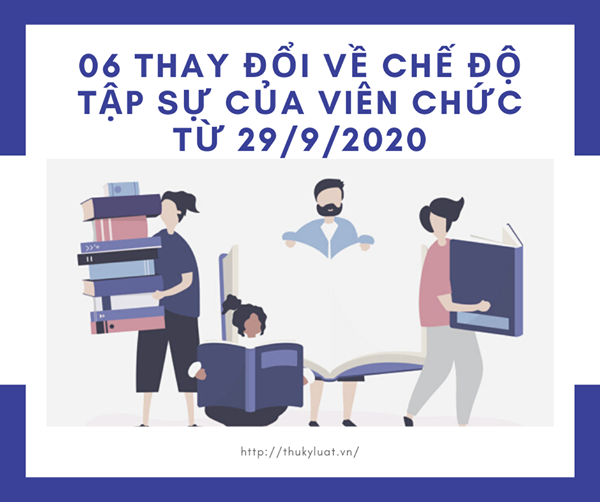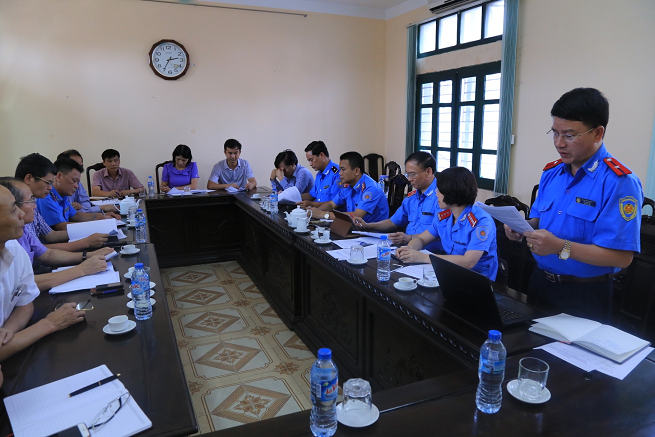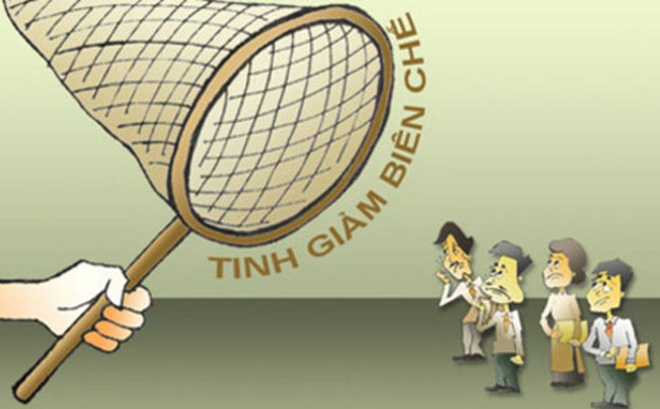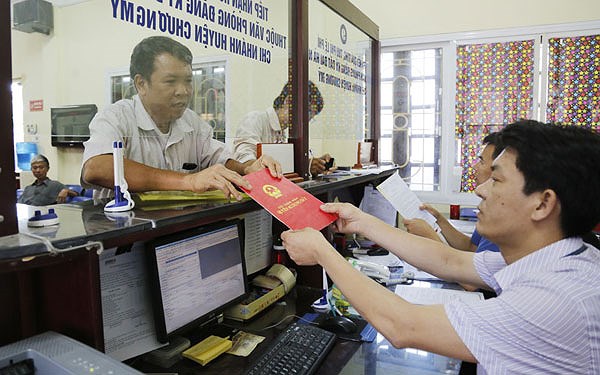Recently, the Government of Vietnam has issued Decree 115/2020/ND-CP regulating the recruitment, employment, and management of public employees with many new provisions. Below are 06 changes in the probation policies applicable to Vietnamese public employees from September 29, 2020.

06 changes in the probation policies applicable to Vietnamese public employees from September 29, 2020(Illustrative image)
1. Addion of persons required to undergo probation
According to Clause 1, Article 21 of Decree 115/2020/ND-CP, individuals recruited as public employees must undergo probation to familiarize themselves with the working environment and perform tasks related to the recruited job positions.
However, probation is not required for individuals who have had working periods with compulsory social insurance premiums according to the provisions of the Law on Social Insurance, individuals who are assigned to work under previous training majors or professional expertise, with accumulated working periods with social insurance premiums equal to or greater than the probationary period corresponding to the position being recruited.
Particularly, for cases where probation is not required, the head of the public service provider must assign the public employee to participate in a training course to complete the standards and conditions for the professional title of public employee before appointment (new regulation).
Meanwhile, according to Article 20 of Decree 29/2012/ND-CP which expires on September 29, 2020, amended and supplemented by Decree 161/2018/ND-CP, individuals who are recruited as public employees and had 12 months or more of experience in relevant professional functions are not required to undergo probation (this has been abolished).
From September 29, 2020, except for cases where the recruited public employees have had work periods with social insurance premiums and are assigned work under previous training majors or professional expertise, newly recruited public employees must undergo probation. This new regulation is suitable to ensure fairness for all individuals recruited as public employees.
2. Probationary period
According to Clause 2, Article 21 of Decree 115/2020/ND-CP, the specific probationary period is as follows:
- 12 months in case of recruitment to professional titles requiring university training qualification standards.
Particularly for the professional title of a doctor, the probationary period is 09 months;
- 09 months in case of recruitment to professional titles requiring college training qualification standards;
- 06 months in case of recruitment to professional titles requiring intermediate training qualification standards.
- Maternity leave period under the social insurance benefits, sickness leave period of 14 days or more, unpaid leave, the period on detention, custody, or temporary suspension of work as prescribed by law shall not be included in the probationary period.
Note: If a probationer takes a sickness leave or leave with legitimate reasons for less than 14 days under the approval of the head of the public service provider where the probationer is recruited, the sickness leave shall be included in the probationary period. (new regulation)
This new regulation inherits the content of Article 20, Decree 29/2012/ND-CP and adds the case where if a probationer takes a sickness leave or leave with legitimate reasons for less than 14 days under the approval of the head of the public service provider where the probationer is recruited, the sickness leave shall be included in the probationary period. This ensures fairness for probationers who cannot undergo probation due to objective or unforeseen reasons such as sickness leave or leave with legitimate reasons. A 14-day period is appropriate to ensure fairness while maintaining the quality of probation policies.
3. Vietnamese public employees on probation must participate in training and refresher courses
According to Clause 3, Article 21 of Decree 115/2020/ND-CP, the specific probationary content includes:
- Mastering legal regulations on public employees, their rights, obligations, and prohibitions; understanding the organizational structure, functions, duties, and authority of the public service provider; rules and workplace regulations; responsibilities, duties, and job requirements of the recruited position;
- Enhancing knowledge and skills required for the job;
- Practicing and undertaking tasks related to the recruited position.
Especially, during the probationary period, the public service provider must assign the public employee to participate in training and refresher courses to complete the standards and conditions for the professional title before appointment. This training duration is included in the probationary period **** (new regulation).
The probationary content is similar to earlier regulations in Article 20 of Decree 29/2012/ND-CP. Additionally, the new regulation requires probationers to participate in training and refresher courses to meet the standards for appointment. This allows public employees to enhance their knowledge, skills, and professional expertise before official appointment, ensuring the future quality of public employees.
4. Vietnamese public employees may undergo probation 02 days earlier
Clause 2, Article 22 of Decree 115/2020/ND-CP specifies that not later than 05 working days from the day public employees take a job, the head of the public service provider must appoint a public employee with equal or higher professional titles and experience to guide the probationer.
Clause 2, Article 21 of Decree 29/2012/ND-CP specifies that the head of the public service provider to do this within 07 working days from the start date. Additionally, the regulation that one mentor cannot guide more than two probationers simultaneously has been abolished (this has been abolished).
From September 29, 2020, public employees must undergo probation no later than 05 days from the day they take a job (02 days earlier than before). The abolition of the regulation restricting one mentor to two probationers aligns with current realities, allowing for flexible work arrangements in each public service provider.
5. Graduates from reserve officer training on probation receive 100% salary
Point c, Clause 2, Article 23 of Decree 115/2020/ND-CP stipulates that probationers who completed military service; police duty; military officers, police officers, professional servicemen, cipher officers, probationer graduating reserve officer training, command training of commanders of commune military command boards of grassroots military branches that awarded the rank of registered reserve officers, volunteer youth teams, young intellectuals volunteering to participate in rural and mountainous development for full 24 months or more that have completed their tasks will receive 100% of the salary and allowances for the corresponding professional title.
Compared to regulations in Article 22 of Decree 29/2012/ND-CP, the new regulation adds probationer graduating reserve officer training, command training of commanders of commune military command boards of grassroots military branches that awarded the rank of registered reserve officers to persons entitled to 100% salary and allowances during the probationary period.
6. Strict regulations on termination of working contracts for probationers
Clause 1, Article 25 of Decree 115/2020/ND-CP specifies that a probationer’s working contract will be terminated, and their recruitment decision will be canceled if they fail the probation requirements or commit violations warranting disciplinary actions according to the law.
Previously, Clause 1, Article 24 of Decree 29/2012/ND-CP specifies that working contracts shall be terminated if the probationer fails the probation requirements or faces a disciplinary action by warning or higher.
From September 29, 2020, probationers who commit violations warranting disciplinary actions can have their working contracts terminated immediately. This stricter regulation ensures both the moral and professional quality of new public employees.
Le Vy
 Article table of contents
Article table of contents
![[InfoGraphic] 6 forms of discipline for officials and public employees under Decree 71/2016/ND-CP](https://cdn.lawnet.vn//uploads/NewsThumbnail/2016/07/12/1319291-01.png)









.Medium.png)
.Medium.png)
.Medium.png)
.Medium.png)
